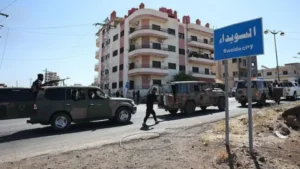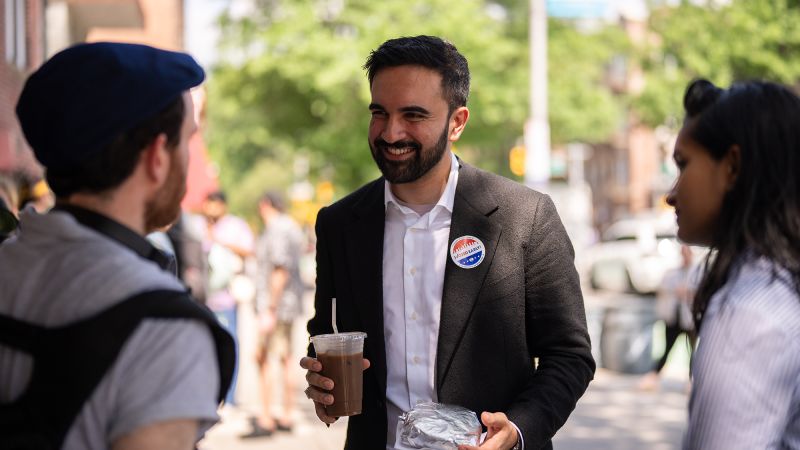The mayoral landscape in New York City has seen palpable shifts following the recent primary elections, particularly influenced by the ongoing crisis of affordability in this metropolis, renowned for its high cost of living. It was with this backdrop that many residents cast their votes, prioritizing candidates who presented plans to alleviate these fiscal burdens. Among those vying for the mayor’s office is Zohran Mamdani, a spirited candidate whose campaign has prominently centered on affordability. His innovative proposals, which include promising rent freezes for rent-stabilized apartments, introducing free public transportation, and establishing city-funded grocery stores, have garnered attention and set him apart from his rivals.
Mamdani, aged 33 and a three-term assemblyman, has gained traction in the race as he moves closer to realizing his vision after former Governor Andrew Cuomo and other contenders conceded to him late Tuesday. However, Cuomo has indicated the possibility of returning as an independent candidate in the upcoming November elections, a move that incumbent Mayor Eric Adams is also considering. Should Mamdani ultimately secure victory, reactions among various stakeholders in the city would be mixed; some businesses and labor organizations could greet his victory with celebrations, while others brace for potential economic fallout resulting from his proposed policies.
Critics highlight the risk inherent in Mamdani’s proposals, with institutions like the Partnership for New York City voicing skepticism. This influential group, representing nearly 300 CEOs, describes several of Mamdani’s initiatives as unrealistic fantasies. Specifically, Kathryn Wylde, the group’s CEO, expressed concern over proposed rent freezes for over a million residents in affordable housing, coupled with his intentions to hike the corporate tax rate to 11.5%. Wylde warns that these moves could inadvertently burden New Yorkers with rising costs if businesses respond with price increases due to financial constraints.
Kenny Burgos, the president of the New York Apartment Association—an organization representing rent-regulated property owners—echoed similar concerns. He posits that extending rent freezes could cripple landlords’ abilities to maintain aging properties, potentially leading to significant deterioration. He cautioned that such a decline in living conditions could force landlords to relinquish management of their properties to the city, a move Burgos argues could be ineffective and detrimental.
While these criticisms loom over his campaign, Mamdani appears unfazed, attributing opposition largely to the landlords who would benefit financially under a system led by Andrew Cuomo. Echoing a different perspective, earlier this month, the United Auto Workers union endorsed Mamdani, citing his commitment to working-class interests and robust campaigning for better wages and living conditions in the city.
Mamdani’s labor platform emphasizes enhanced collective bargaining rights, advocating for better wages across various sectors. Notably, he supports a proposal that seeks to raise New York City’s minimum wage to $30 per hour by 2030. The implications of such changes could be significant; previous studies on similar minimum wage hikes have shown mixed outcomes, ranging from reductions in payroll to increased automation and price inflation among businesses.
One of Mamdani’s standout initiatives involves the creation of a network of city-operated subsidized grocery stores, aimed at making food more available and affordable in areas lacking adequate grocery options. However, this proposal has met discontent from affluent business figures, such as billionaire John Catsimatidis, who stated his intent to halt operations in the city should Mamdani prevail. Expressing his frustration, Catsimatidis has criticized Mamdani’s socialist tendencies, asserting a desire to protect conventional business practices.
Additionally, Mamdani has addressed concerns over food accessibility by focusing on the street vendor community, which has faced “halal-flation,” according to his terminology. This term describes the mounting costs of halal food, influenced by stringent permit regulations that vendors must navigate, often leading them to pay exorbitant fees. Collaborative engagements, as demonstrated during a campaign video where he interacted with street vendors, reveal his strategy of addressing community needs directly and empathetically.
In conclusion, Mamdani’s progressive campaign illustrates a fundamentally different vision for New York City, one that prioritizes affordability and labor rights amidst a landscape marked by economic disparity. Whether he will experience a successful ascent to the mayoral office remains uncertain, but his proposals have certainly sparked discussion amongst diverse sectors of the city, deepening the dialogue around the pressing issue of affordability in one of the world’s most expensive cities.











